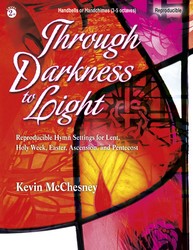- |
User Links
El Señor resucitó

El Señor resucitó
Author (estrs. 1-3): Michael Weisse; Translator: Juan Bautista Cabrera Ivars; Author (estr. 4): Charles Wesley (1745)Tune: EASTER HYMN (Lyra Davidica)
Published in 44 hymnals
Printable scores: PDF, Noteworthy ComposerAudio files: MIDI
Representative Text
1 El Señor resucitó, ¡Aleluya!
Muerte y tumba él venció, ¡Aleluya!
Su poder y su virtud, ¡Aleluya!
Cautivó la esclavitud. ¡Aleluya!
2 El que al polvo se humilló, ¡Aleluya!
Vencedor se levantó. ¡Aleluya!
Y cantamos en verdad, ¡Aleluya!
Su gloriosa majestad. ¡Aleluya!
3 El que a muerte se entregó, ¡Aleluya!
El que así nos redimió, ¡Aleluya!
Hoy en gloria celestial, ¡Aleluya!
Reina en vida triunfal. ¡Aleluya!
4 Cristo nuestro Salvador, ¡Aleluya!
De la muerte vencedor, ¡Aleluya!
Pronto vamos sin cesar ¡Aleluya!
Tus loores a cantar. ¡Aleluya!
---
1 Jesus Christ is ris'n today, Alleluia!
Our triumphant holy day, Alleluia!
Who did once upon the cross, Alleluia!
Suffer to redeem our loss. Alleluia!
2 Hymns of praise then let us sing, Alleluia!
Unto Christ, our heav'nly King, Alleluia!
Who endured the cross and grave, Alleluia!
Sinners to redeem and save. Alleluia!
Source: Flor Y Canto (2nd ed.) #411
Author (estrs. 1-3): Michael Weisse
Michael Weiss was born at Neisse, in Silesia. He was a pastor among the Bohemian Brethren, and a contemporary with Luther. His hymns have received commendation. He died in 1540. --Annotations of the Hymnal, Charles Hutchins, M.A. 1872.… Go to person page >Translator: Juan Bautista Cabrera Ivars
 Juan Bautista Cabrera Ivars was born in Benisa, Spain, April 23, 1837. He attended seminary in Valencia, studying Hebrew and Greek, and was ordained as a priest. He fled to Gibraltar in 1863 due to religious persecution where he abandoned Catholicism. He worked as a teacher and as a translator. One of the works he translated was E.H. Brown's work on the thirty-nine articles of the Anglican Church, which was his introduction to Protestantism. He was a leader of a Spanish Reformed Church in Gibraltar. He continued as a leader in this church when he returned to Spain after the government of Isabel II fell, but continued to face legal difficulties. He then organized the Spanish Reformed Episcopal Church and was consecrated as bishop in 1894. He… Go to person page >
Juan Bautista Cabrera Ivars was born in Benisa, Spain, April 23, 1837. He attended seminary in Valencia, studying Hebrew and Greek, and was ordained as a priest. He fled to Gibraltar in 1863 due to religious persecution where he abandoned Catholicism. He worked as a teacher and as a translator. One of the works he translated was E.H. Brown's work on the thirty-nine articles of the Anglican Church, which was his introduction to Protestantism. He was a leader of a Spanish Reformed Church in Gibraltar. He continued as a leader in this church when he returned to Spain after the government of Isabel II fell, but continued to face legal difficulties. He then organized the Spanish Reformed Episcopal Church and was consecrated as bishop in 1894. He… Go to person page >Author (estr. 4): Charles Wesley
 Charles Wesley, M.A. was the great hymn-writer of the Wesley family, perhaps, taking quantity and quality into consideration, the great hymn-writer of all ages. Charles Wesley was the youngest son and 18th child of Samuel and Susanna Wesley, and was born at Epworth Rectory, Dec. 18, 1707. In 1716 he went to Westminster School, being provided with a home and board by his elder brother Samuel, then usher at the school, until 1721, when he was elected King's Scholar, and as such received his board and education free. In 1726 Charles Wesley was elected to a Westminster studentship at Christ Church, Oxford, where he took his degree in 1729, and became a college tutor. In the early part of the same year his religious impressions were much deepene… Go to person page >
Charles Wesley, M.A. was the great hymn-writer of the Wesley family, perhaps, taking quantity and quality into consideration, the great hymn-writer of all ages. Charles Wesley was the youngest son and 18th child of Samuel and Susanna Wesley, and was born at Epworth Rectory, Dec. 18, 1707. In 1716 he went to Westminster School, being provided with a home and board by his elder brother Samuel, then usher at the school, until 1721, when he was elected King's Scholar, and as such received his board and education free. In 1726 Charles Wesley was elected to a Westminster studentship at Christ Church, Oxford, where he took his degree in 1729, and became a college tutor. In the early part of the same year his religious impressions were much deepene… Go to person page >Text Information
| First Line: | El Señor resucitó |
| German Title: | Christus ist erstanden |
| Translator: | Juan Bautista Cabrera Ivars |
| Author (estrs. 1-3): | Michael Weisse |
| Author (estr. 4): | Charles Wesley (1745) |
| Meter: | 7.7.7.7 with alleluia |
| Place of Origin: | England |
| Language: | Spanish |
| Copyright: | Public Domain |
English
Spanish
- Cáliz de Bendiciones: himnario Discipulos de Cristo #152
- Cantemos al Señor #214
- Cántico Nuevo: Himnario Evangelico #130
- Cantos del Camino #134
- Cantos del Pueblo de Dios = Songs of the People of God (2nd ed.) #45
- Cantos del Pueblo de Dios = Songs of the People of God (2nd ed.) #52
- Celebremos Su Gloria #215
- Culto Cristiano #74
- El Himnario #156
- El Himnario #129 10 shown out of 43
Tune
EASTER HYMN (Lyra Davidica)EASTER HYMN originally appeared in the John Walsh collection Lyra Davidica (1708) as a rather florid tune. Tempered to its present version by John Arnold in his Compleat Psalmodist (1749), EASTER HYMN is now one of the best and most joyous Easter tunes. Composed by Paul Sjolund (b. Minneapolis, MN,…
[I have precious news to tell]


 My Starred Hymns
My Starred Hymns






